Introduction
I remember as a young cadet (and even as a young lieutenant) rolling my eyes a bit every time a leader preached the importance of reading. “I’m just not a reader…” I would think to myself. But all that really meant was that I wasn’t willing to put in the effort.
It’s easy these days to lose yourself in the mindless activities of scrolling on your phone or watching television. There’s very little friction that comes with opening your phone and allowing your mind to be peppered with the attention-grabbing photos, videos and advertisements. Reading, however, is much more mentally taxing. It requires thought and reflection.
In the past few years I’ve pushed through that friction. The more I read, the more I recognize its importance. There is a reason that every military leader, every successful businessman or woman, and every intellectual mentor preaches this message. It’s because you can’t get there on your own. Whatever it is that you’re striving for, whatever it is you want to learn or do, you must draw on the experience of others. That is done by reading.
Furthermore, the insights gained from reading have a compounding effect. Lessons from one book provide unique context to the lessons you will learn in the next. With every book you read you increase the dataset of your own unique knowledge base. A knowledge base that no one else in the world has. And that’s pretty cool.
What follows is a list of books which I feel have had a profound impact on my life. Impacting both the way I see the world, and the actions I take in response.
Call Sign Chaos - Jim Mattis
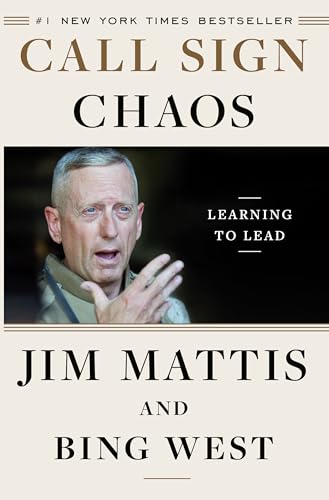
“If you haven't read hundreds of books, you are functionally illiterate, and you will be incompetent, because your personal experiences alone aren't broad enough to sustain you.”
I still remember reading this quote over and over again, trying to figure out if he was exaggerating for effect. Spoiler alert: he wasn’t.
If you know anything about Jim Mattis, you’ll know that before he was the Secretary of Defense, he was a Marine for over 40 years and takes a ruthless approach to leadership and discipline. His opinion on the importance of reading is simple: without it, you won’t survive.
I fall in and out of my reading habit on a regular basis as I endure the rigors of life. But whenever I fall out of it, I can feel the “Mad Dog” growling in my ear, reminding me that I am still functionally illiterate, and incompetent.
There isn’t much more to say about this book. There are a lot of great tactical and strategic lessons to learn from it as a leader in the military. However, my greatest takeaway was Mattis’ emphasis on reading.
No matter how much you try, whatever it is that you’re trying to learn or accomplish, you cannot do it on your own. You need to draw on the experiences of others. The best way to do that is through reading.
Everything has been done before, and most of it has been written down in some capacity. Put in the effort to read the words of those who came before you. Draw on their experiences, and go make your own.
Steal Like an Artist - Austin Kleon
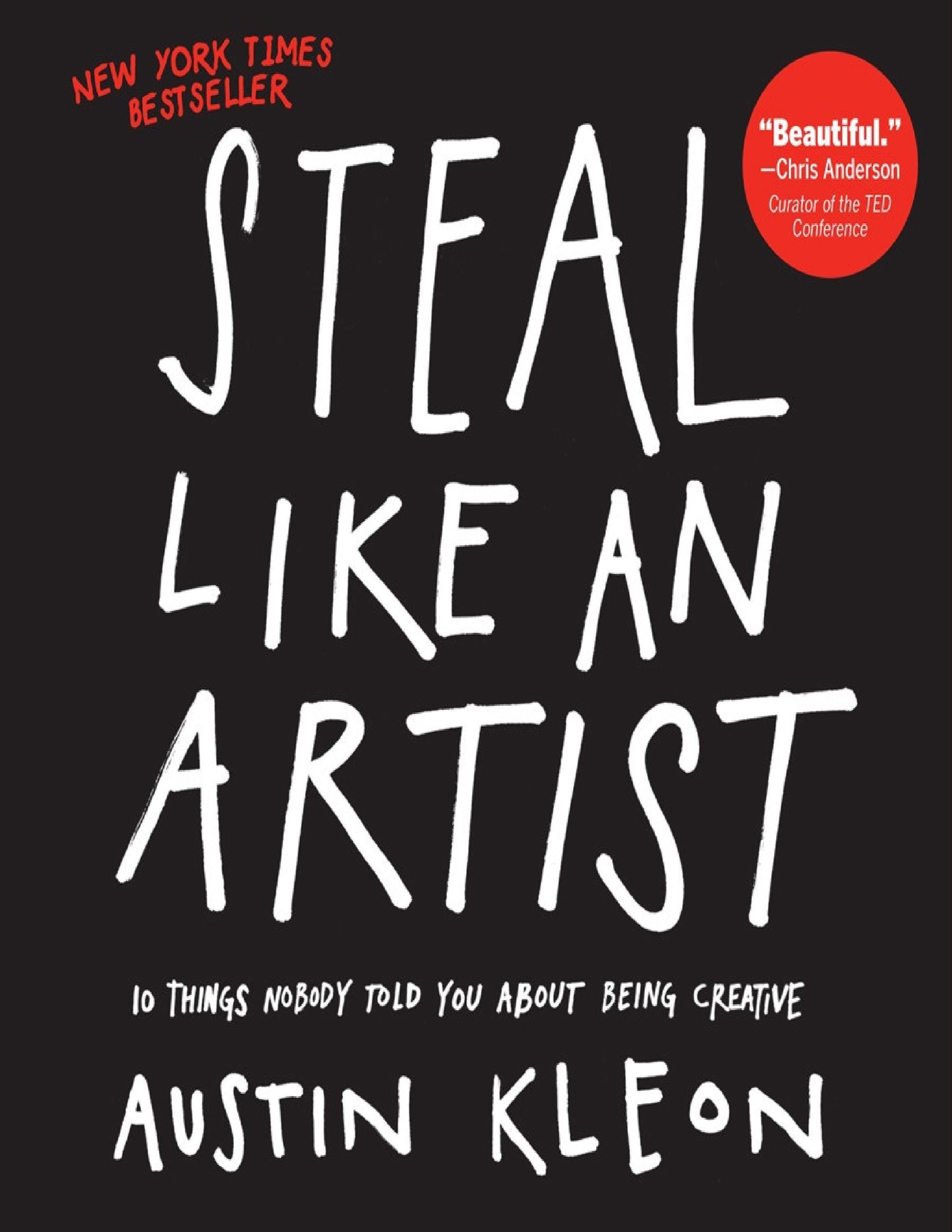
"If we’re free from the burden of trying to be completely original, we can stop trying to make something out of nothing, and we can embrace influence instead of running away from it."
"...stop worrying about what’s “good” and what’s “bad”—there’s only stuff worth stealing, and stuff that’s not worth stealing."
For a long time I held back from creating things because I felt like I would just be copying someone. This blog, my social media, and even my github are products of the lessons learned from this book (and the next one on the list).
Just as the lesson from Call Sign Chaos points out: everything has been done before. Just by virtue of doing something that “has already been done” does not make the work that you do, or the content that you create unoriginal. You aren’t stealing, you’re drawing on the influence of others that came before you. You will inevitably put your own unique touch on whatever it is that you think has been done before, and it will become original.
Show Your Work! - Austin Kleon
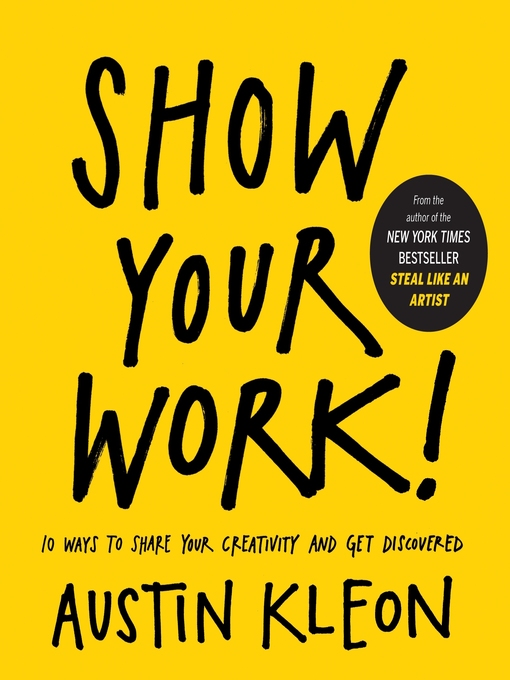
"But whatever the nature of your work, there is an art to what you do, and there are people who would be interested in that art..."
"Make stuff you love and talk about stuff you love and you’ll attract people who love that kind of stuff. It’s that simple."
Both this book and Steal Like an Artist are quick reads and I would recommend reading them one after another in the order I’ve talked about them here. Expanding on the lessons from Steal Like an Artist, this book taught me that, not only should I be unafraid to be “unoriginal”, but I should do so publicly. Good work doesn’t exist in a vacuum. It is always the result of a collaboration. There’s a reason almost every book that’s ever been written has an “Acknowledgements” section.
For a long time I didn’t know what to do with the lessons from these two books because I never felt that I had a clear passion. How can I share something I’m not really passionate about?
Since finding my passion for tech and lifelong learning, I’ve discovered the importance of showing my work. This blog, my socials, my github etc. are all efforts to show my work, learn out loud, share value with others, and connect with other like-minded nerds.
Atomic Habits - James Clear
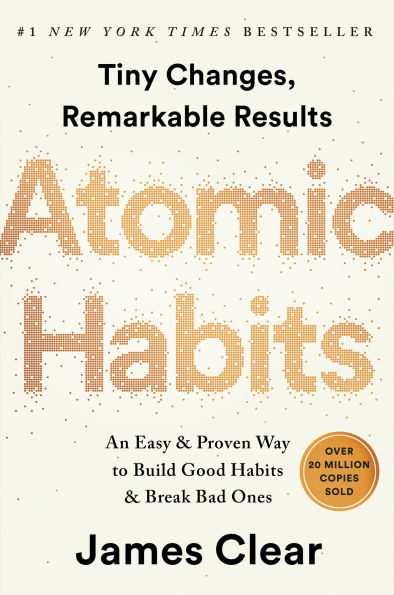
"Bad habits are autocatalytic: the process feeds itself. They foster the feelings they try to numb."
"In the short-run, you can choose to overpower temptation. In the long-run, we become a product of the environment that we live in. To put it bluntly, I have never seen someone consistently stick to positive habits in a negative environment."
This is an amazing book about the science behind building good habits and breaking bad ones. My greatest takeaway was this: disciplined people aren’t really that disciplined.
What disciplined people are great at doing is shaping their environment. They limit or remove the temptations around them by making it difficult, or even impossible, to do the wrong thing, and they make it easy to do the right thing.
If your goal is to lose weight, it is not an effective strategy to keep your house stocked with junk food. When you open your pantry, if you are presented with loads of unhealthy options and only a few, significantly less appealing good ones, then you are far more likely to make the wrong choice. You can, of course, still make the “disciplined” choice. But, this is mentally taxing. You can’t keep that up day after day.
What a disciplined person would do, is throw out the junk food. This reduces the strain on their decision making process every day because it is easier to make the right choice. Sure, you could still manage to eat something unhealthy. You could decide that you want McDonald’s for breakfast, get in your car, leave the house and go get it. And, at times, even the disciplined person may do this. But if they do, it is a calculated, deliberate and, most importantly, rare occurrence.
What does all this mean? It means you are not born with or without discipline. You choose to be disciplined by shaping your environment in a way that adds friction around decisions that are not aligned with your goals, and reduces friction around the ones that are.
Everything That Remains - Joshua Fields Milburn & Ryan Nocodemus
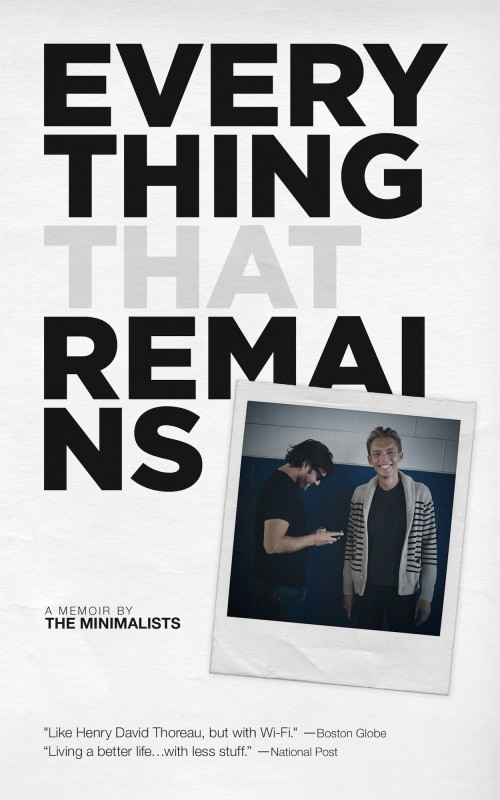
"Ultimately most of us come to believe there’s more value in a paycheck—and all the stuff that paycheck can buy us—than there is in life itself."
"The best way to give yourself a raise is to spend less money. These days I know that every dollar I spend adds immense value to my life. There is a roof over my head at night, the books or the music I purchase add unspeakable value to my life, the few clothes I own keep me warm, the experiences I share with others at a movie or a concert add value to my life and theirs, and a meal from China Garden with my best friend becomes far more meaningful than a trip to the mall ever could."
This book freed me from the chains I had to my physical possessions. This isn’t a book on how to be a minimalist; though Josh and Ryan are, indeed, self-proclaimed minimalists. This is a book that teaches you what’s truly important in life.
Think about all of the items that you own. All of your clothes. dishes, kitchen appliances, computers, televisions, vehicles, even your furniture. What value are these items adding to your life?
This is a tough question to ask, but it should be asked for every item in your life. The answer will be different for everybody. For one person, a coffee mug collection adds immense value. They drink coffee from the mugs every morning. The mugs remind them of joyful memories of the loved ones who gifted them on a daily basis.
For another person, that mug collection adds no value. They don’t even drink coffee. They’ve simply collected it because of the social pressure producing thoughts along the lines of “Well, I need coffee mugs… Everyone needs coffee mugs!”
In the case of the latter, you don’t own the coffee mugs. The coffee mugs own you. You now have to care for, wash, protect, store, transport etc. a collection of items that bring no inherent value to you; items that you don’t even really care about. And you’re doing this because, well, society told you to. I don’t know about you, but that sounds a bit like indentured servitude to me.
Now, if you visited my house, you would not think that my family or I are minimalists. Minimalism isn’t about fitting everything you own into a carry-on. Minimalism is about asking yourself that hard question about every item you own, being unafraid to let go of things that don’t add value, and keeping only the items that do.
Getting Things Done: The Art of Stress Free Productivity - David Allen
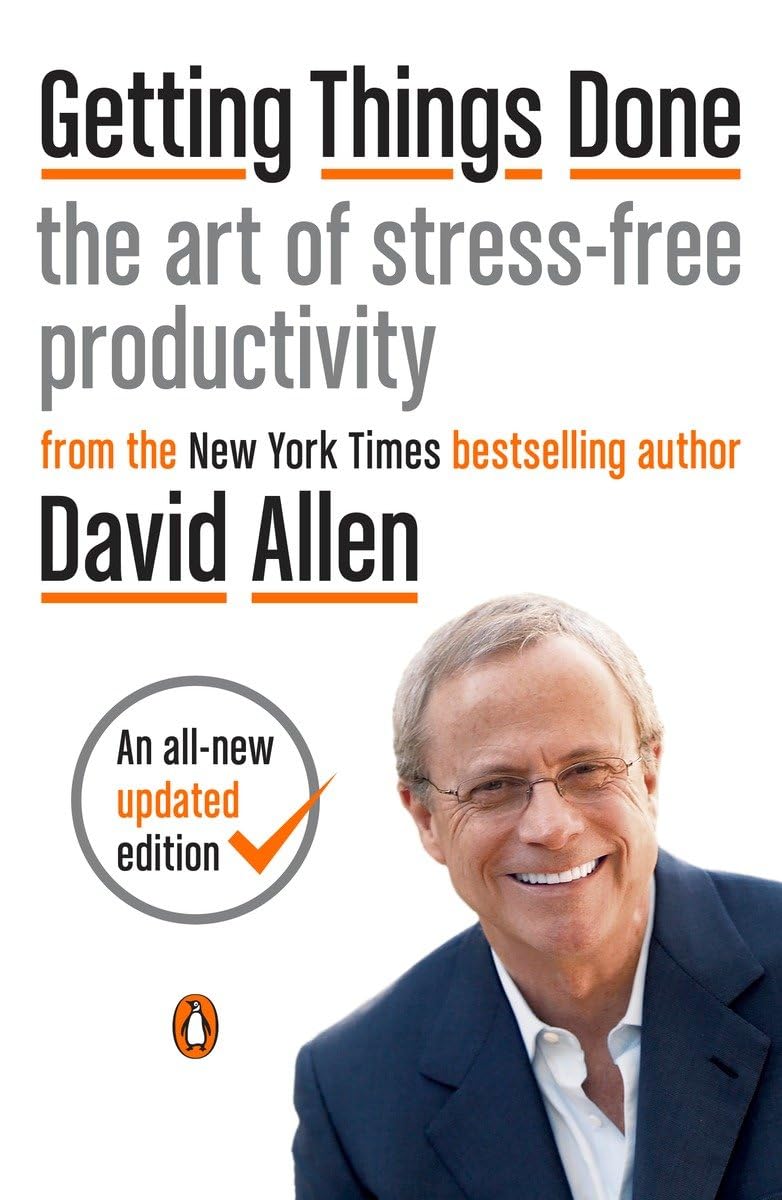
"Here's how I define "stuff": anything you have allowed into your psychological or physical world that doesn't belong where it is, but for which you haven't yet determined what, exactly, it means to you, with a desired outcome and next action step."
"We (1) capture what has our attention; (2) clarify what each item means and what to do about it; (3) organize the results, which presents the options we (4) reflect on, which we then choose to (5) engage with."
This book floated around our many houses, through many military moves for a long time. It was gifted to my wife from her uncle twice (we had two copies). Neither of us ever gave it a second glance. The dog even tried to eat one of the copies and we, for some reason, still never got rid of it. Talk about not being a minimalist huh?
One day, I picked it up with the intention of finally getting rid of it. It had provided neither of us any value for so long. I skimmed a few pages and decided to read it. Ever since, the way I handle both day-to-day tasks and bigger projects, both at work and at home, has forever changed. The productivity system that David provides is an absolute game-changer. I’ve written an entire post about it here.
Even if you don’t read this book in its entirety, familiarizing yourself with the methodology will be well worth your time.
The Phoenix Project - Gene Kim
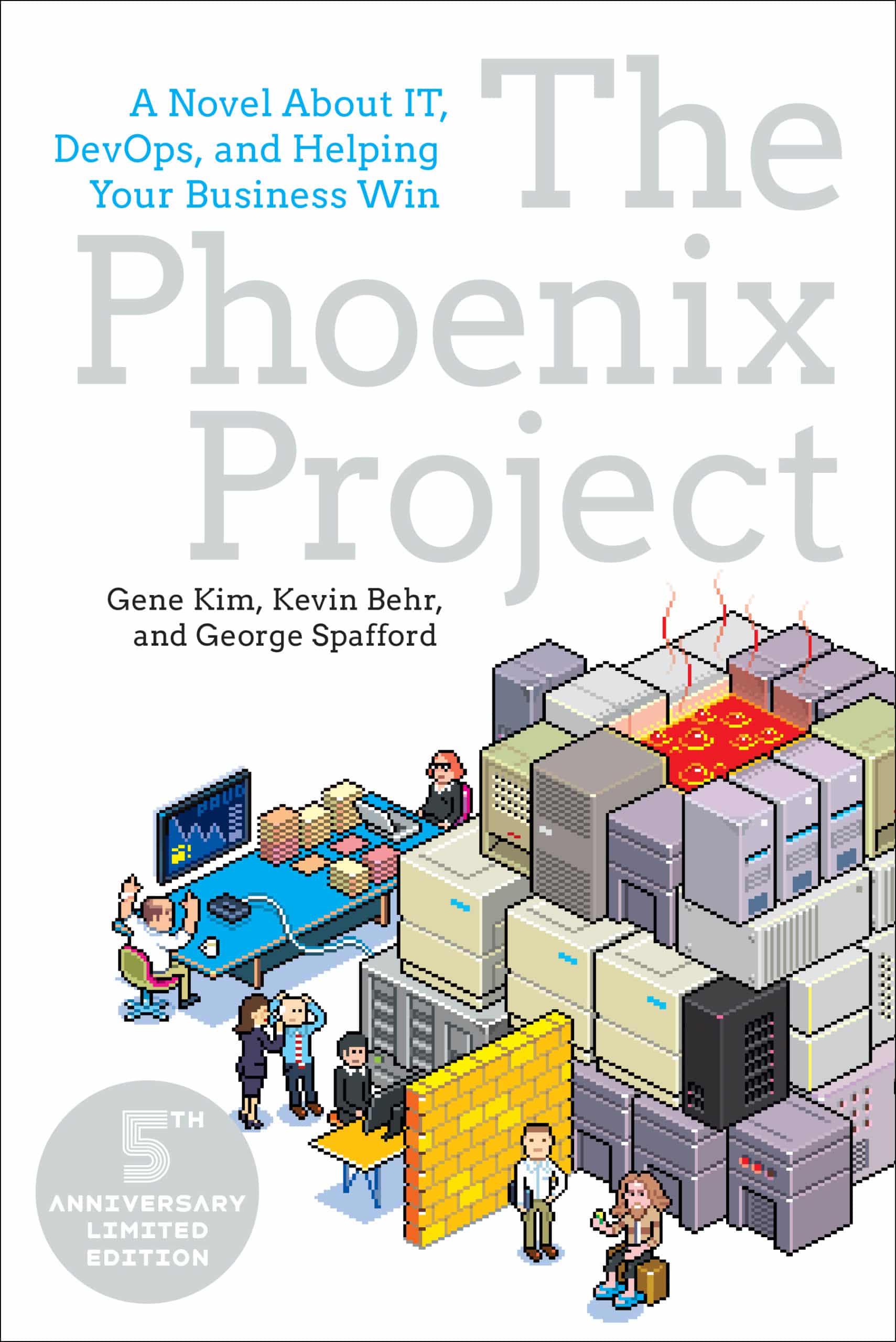
"Every time that we let Brent fix something that none of us can replicate, Brent gets a little smarter, and the entire system gets dumber."
"Any improvement not made at the constraint is just an illusion"
The Phoenix Project is a widely renowned book in the world of DevOps. It’s a fictional story, written as a complement to the DevOps Handbook, about a large auto-parts company with a long, drawn out IT project that’s costing the company money and not delivering on its promises. The main character is appointed to optimize workflows and fix the problem.
My greatest takeaway from this book comes from a character named Brent. Brent is the guy. You know, the guy or gal that everyone goes to with all of their problems and questions. He is the encyclopedia of the organizations internal IT systems. He knows his way around every server, switch and router in the company. He does so many things that the question of “How do we do that?” is often answered with simply “Brent does it.”
Brent is what’s known as a constraint. A bottleneck. The organization has work that depends entirely on his availability to do the task.
This means you need to do two things if you are trying to optimize a workflow:
- Identify the constraint
- Protect, and optimize around the constraint
Optimizations made elsewhere ultimately don’t matter. Why? Because the work is going to flow to that constraint and become bottlenecked there anyway. Increasing the speed at which work flows toward your constraint is unhelpful if you have made no improvements to the constraint’s ability to process work.
Sapiens - Yuval Noah Harari
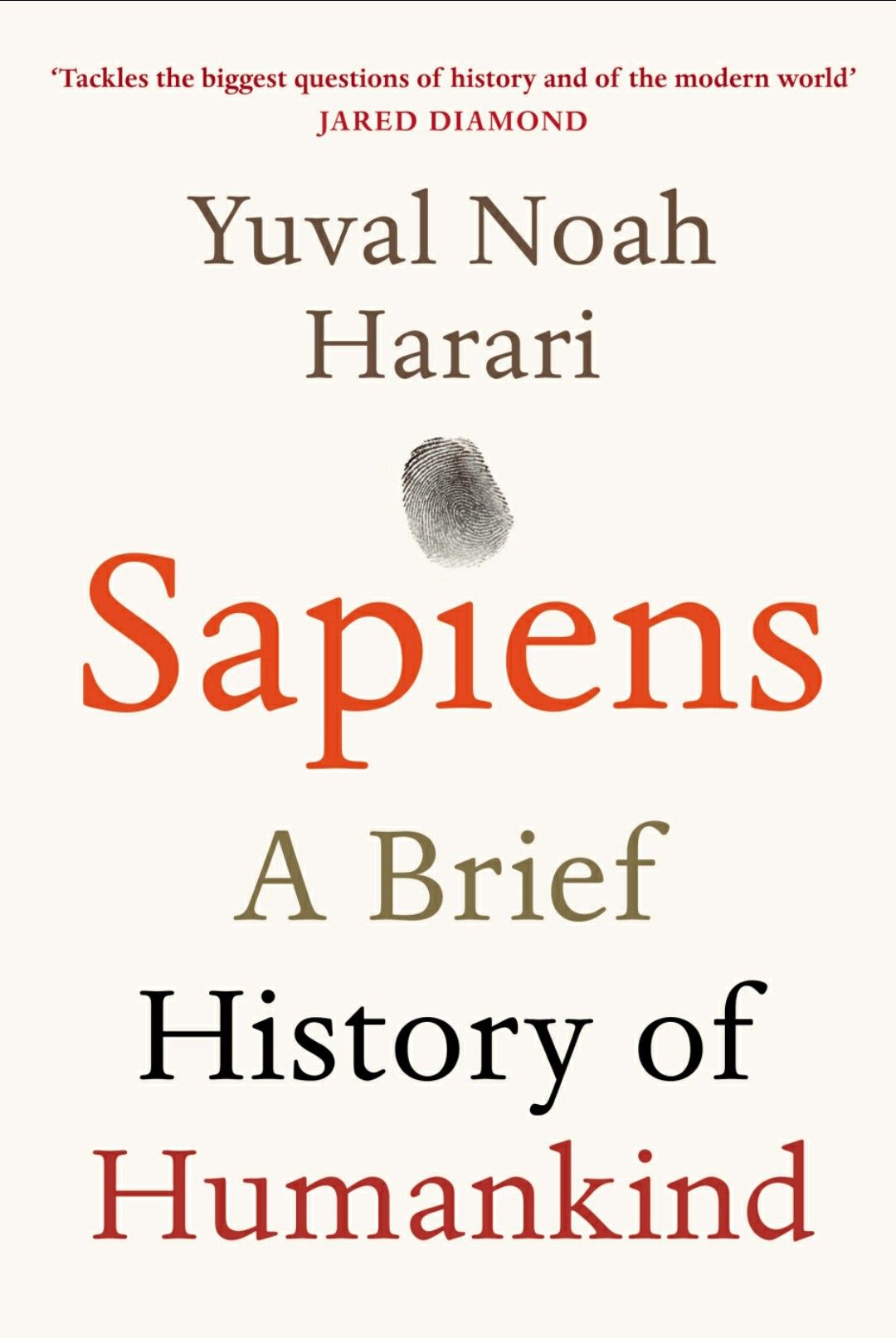
"Money is not coins and banknotes. Money is anything that people are willing to use in order to represent systematically the value of other things for the purpose of exchanging goods and services.
"Trust is the raw material from which all types of money are minted."
"Money is the most universal and most efficient system of mutual trust ever devised."
This book provides a deep insight on the history of all humanity. It gives context to why humans do the things that they do. Why we have war, power struggle, bureaucracy, and money. I honestly need to give this one a re-read to fully digest many of the lessons from it. One, however, sticks out in my mind, and that is the explanation of money.
Remember when bitcoin first surfaced? I remember thinking to myself “That won’t go anywhere, it’s not even real money. It doesn’t have any value.” But what I didn’t realize is… not only is Bitcoin not real…
Money isn’t real.
Money is nothing more than something that a society puts mutual trust into; that they have collectively decided as having value for the exchange of goods and services. In some prison environments, items like cigarettes become currency. For a long period in history, gold was a nearly universal currency. Nowadays, countries have their own denominations of paper bank notes and most exchanges of these bank notes are abstracted away through bits and bytes in a digital system.
At the end of the day, these things are just metal, paper, or electricity passing through the wires, boards and CPUs of a computer. Do they have value? Not inherently. They only do because a collection of human beings have put their mutual trust in that item as a system of currency.
My personal takeaway from this, as I reflect again on it while writing this, is that the cliche saying – “Money isn’t everything.” – is true at a very deep level. Money isn’t everything. Money isn’t even real.
Financial Peace Revisited & The Total Money Makeover - Dave Ramsey
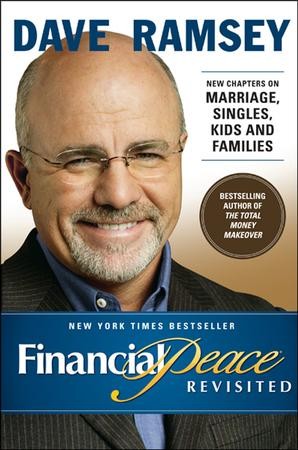
"I have a secret for you: banks are not nonprofit companies."
"If you cannot explain it to someone else, you should not buy it or invest in it."
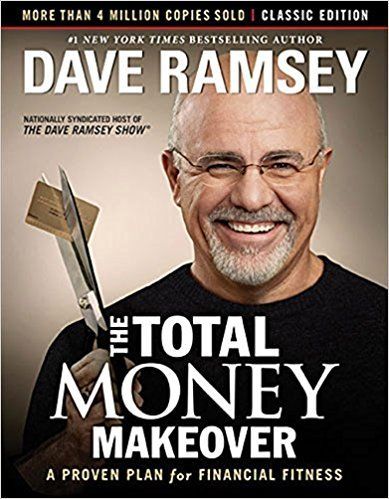
“Winning at money is 80 percent behavior and 20 percent head knowledge. What to do isn’t the problem; doing it is. Most of us know what to do, but we just don’t do it. If I can control the guy in the mirror, I can be skinny and rich.”
Now, discovering from Sapiens that money isn’t real, does not mean that you should ignore it. Although money is nothing more than a figment of collective human trust; money will ruin your life if you don’t handle it properly.
Growing up, I had an aversion to credit cards. I had an aversion to the idea of debt. I don’t know where that aversion came from, but from a young age, I was skeptical of the idea of using someone else’s money.
But, society has a loud mouth. Social media makes it even louder. If you search on the internet for financial advice you will find plenty of opinions. “What do you mean you don’t have a credit card? How are you going to build credit? What do you mean you can’t afford the car? Just get a loan, everyone has a car loan! The career starter loan is a great benefit for you as a newly commissioned officer!”
We’re peppered with these opinions regularly and, unfortunately, I gave in and listened to some of it. By 2020 my wife and I, newly married, were living like the average Americans. We had car loans, used a credit card for everything, we didn’t budget, and we had no plan. One month, my paycheck didn’t cover the balance on our credit card, and we had to carry it over and pay the interest. It wasn’t much, but that small mistake, combined with the looming realization that we had tens of thousands of dollars of student loan debt coming due, was my wake-up call. And I’m thankful it was.
I realized that what we were doing wasn’t working. If we continued handling money the way we had been (the way society expected us to) we would find ourselves somewhere that we did not want to be. We would likely never retire. We would be working well into our 70s and, worst of all, our children would inherit nothing but unpaid debts from us.
Then, like a true young millennial, I first stumbled across Dave Ramsey on youtube. I quickly picked up his books and adopted his ethos to personal finance. It resonated with me, because it validated the feelings I had about debt all along. His ethos is simple:
Live on less than you make and stay out of debt.
But it wasn’t just confirmation bias that drove me to the Ramsey way of personal finance. Dave’s strategy has a proven track record of helping literally thousands of people find a path to financial peace.
Furthermore, the number of people who have followed Dave’s baby steps and wound up poor, is precisely zero. I feel confident in saying this because the only way this plan fails is if you do. It’s not dependent on the market. It’s not dependent on interest rates. It’s dependent on you. And that’s the catch: the baby steps aren’t easy. You have to put in the work. You have to be willing to sacrifice.
Finding Dave’s show, books and overall outlook on personal finance was one of the best things that could have happened to my family. My only regret is that I didn’t start thinking about it sooner. If I had 30 seconds to give a younger me financial advice, it would simply be this:
Read Dave’s books. If you don’t read the books, listen to the podcast. If you don’t listen to the podcast, watch the videos on youtube. If you don’t watch the youtube videos, watch the shorts or the tiktoks. Whatever your do, adopt his ethos. Learn and follow the baby steps as soon as possible, get out of debt, stay out of debt and take control.
Re-coding america
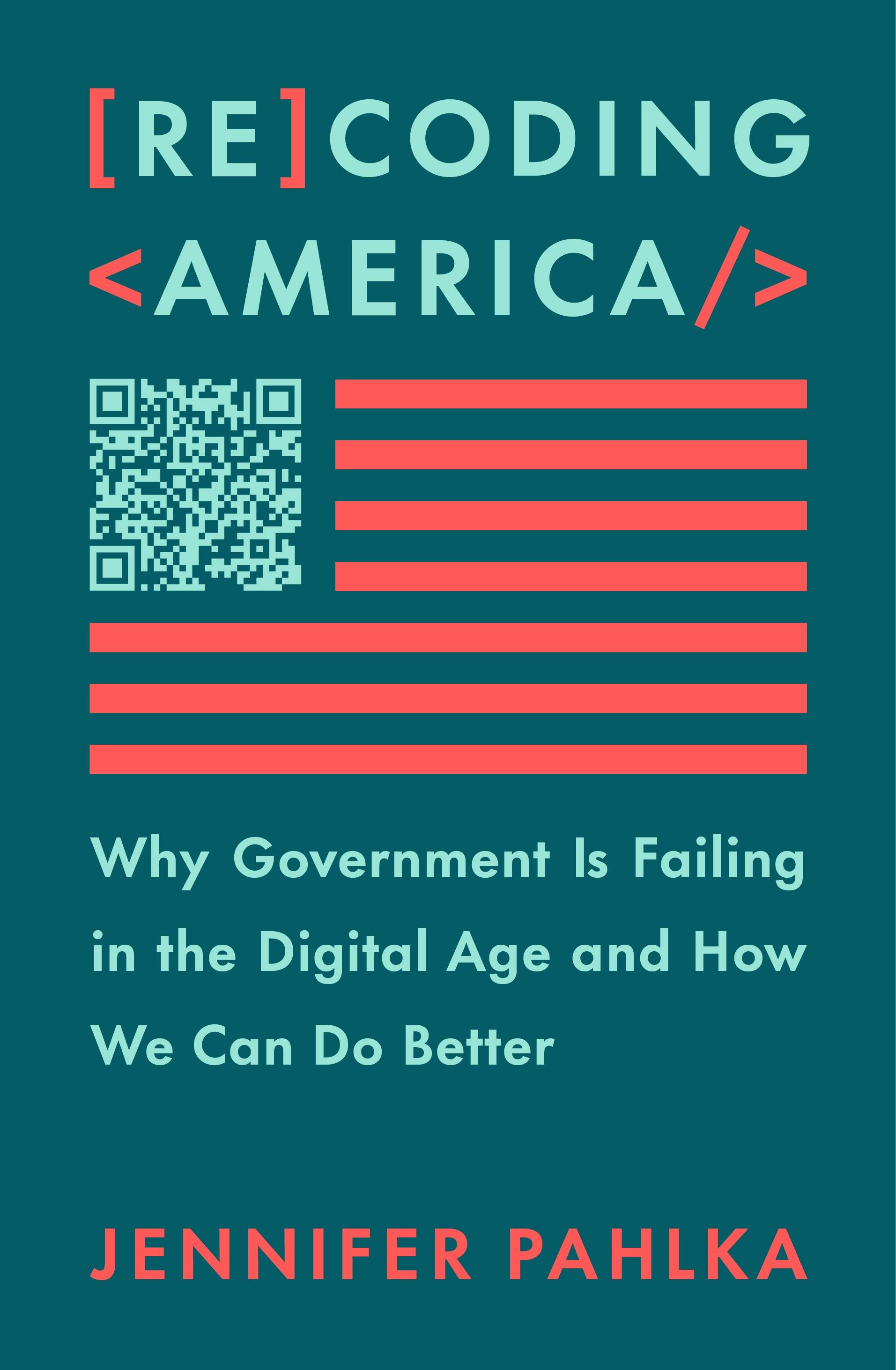
"...nowhere in government documents will you find a requirement that the service actually works for the people who are supposed to use it. The systems are designed instead to meet the needs of the bureaucracies that create them -- they are risk mitigation strategies for dozens of internal stakeholders."
"Once a program is established in government, its value is rarely measured by usage or utility."
"The only thing worse than an inaccessible front door is a welcoming one that doesn't lead anywhere."
This book peels back the curtain of government tech. Have you ever visited a government website and felt like you just stepped into a time machine that took you back to the 90s? Have you ever been frustrated with attempting to submit a request on a government website and wondered why they can’t just make it easier?
Well, this book goes into great detail explaining why all of those things are the way that they are. My greatest takeaway was this: government IT systems are not created to serve the end-user, they are created to satisfy a list of requirements.
Government IT has a broken feedback loop. In industry, success is based almost entirely on what the end user thinks of the product. And the market will either correct or kill a bad product. In government, success is based on checking all the boxes before the launch of the product. Does it do X, does it do Y and does it do Z? Yes? Ship it. Success. No? Go back and make sure it does X, Y and Z. No feedback comes from the end-user.
This does two things:
- Makes the process to produce something incredibly slow
- Produces things that don’t work
Let’s say a new startup was making an AI-powered app that could generate an approximate image of a person’s face based on an image of the back of their head. Let’s say when that product shipped, there was a bug in the account creation process, and no one who attempted to use it could even get logged in to try it out. They could submit a request to customer support to have their account created, but no one does that, because that’s tedious and annoying.
What would happen? That startup would have two choices:
- Fix the issue so that the product satisfied the end user
- Do nothing and go bankrupt because no one would buy their product… because the product doesn’t work.
If the same thing happens to a government product, the government will sit idly by, and end users will simply be forced to endure whatever consequences come with a lack of access to the service.
The thing is… you can live without access to an AI-powered app that shows you what a person’s face looks like based on an image of the back of their head. It’s much harder to live without food stamps, medical care or unemployment benefits when you desperately need them.
What is the fix? Well, I’m not sure. Maybe it’s legislation that adds a requirement of every system to actually meet the needs of the consumer. But that feels like digging a fishhook out of your thumb with another fishhook. Regardless, this book definitely has me in deep thought about it. Especially since I work in government IT myself.
The Kill Chain - Christian Brose
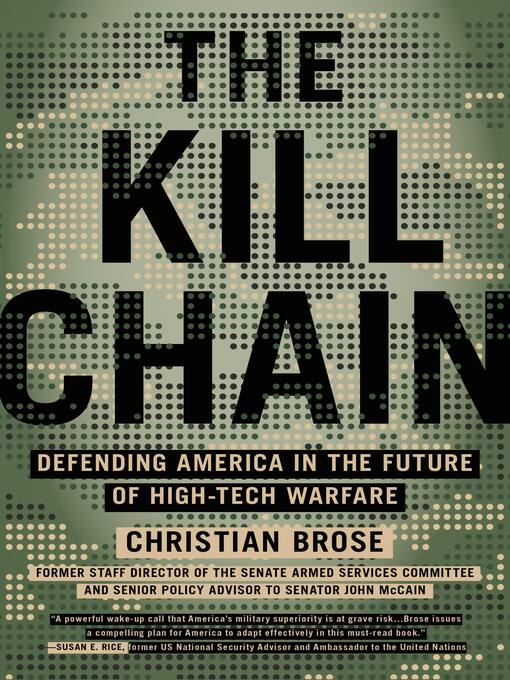
“The entire basis by which the US military understands events, makes decisions, and takes actions—how it closes the kill chain—will not withstand the future of warfare. It is too linear and inflexible, too manual and slow, too brittle and unresponsive to dynamic threats, and too incapable of scaling to confront multiple dilemmas at once.”
"It is as if America defeated the Soviet Union and then went about adopting the Soviets’ military procurement system."
Another book that provides amazing insight on the stifling government bureaucracy which inhibits our ability to make meaningful progress. This focuses less directly on IT systems and more on the government’s budget and procurement process as a whole.
The best way that I can sum up my takeaways from this book is with an analogy:
At work, I have a list of things I would like to accomplish before I move on to my next position: a couple of big projects that I feel would have a lasting impact on the organization if I can see them through. However, every day, I find myself “putting out fires” as we like to say. Reacting to things that are urgent, but ultimately low on my priority list.
Now, when this happens to me, I lose a few hours at a time. At its worst, I can waste a whole day. Maybe I get sucked into a meeting that goes until lunchtime, during lunch another problem arises that I spend the whole hour fixing, after lunch my boss calls me down to discuss something that I’m ultimately going to delegate to someone else.
To folks in congress? This happens on a monumental level. When you get pulled into issues that are an “urgent but lesser priority” as Brose puts it, you lose an entire year. The book cites one such example, where during the budget process, a group of Congress members pushed the issue of prohibiting the greater sage grouse, lesser prairie chicken, and the burying beetle from being listed as endangered species. This took away valuable time that could have been spent allocating money for the future of the military.
I wish I was kidding.
So, my big takeaway from this book was that bureaucracy kills innovation, and innovation is needed to win a war against a near-peer adversary. I don’t want to pretend to have all the answers, because I barely know what I’m talking about. I’m just a guy that read a book. But, I feel something has to change. We need to move faster, or we will be fighting an uphill battle in the next world conflict.
Range - David Epstein
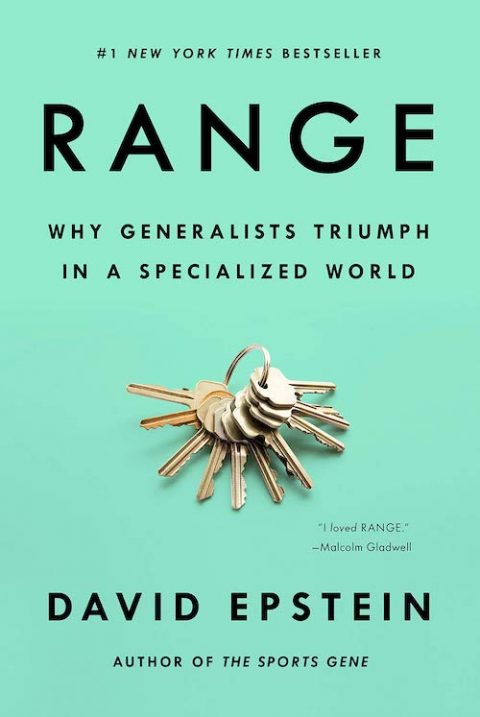
"The most successful experts also belong to a wider world."
"Compare yourself to yourself yesterday, not younger people who aren't you."
"When all you have is a volcanologist... every extinction looks like a volcano."
Being somewhat of a late bloomer in the world of tech, I am often cursed by the feeling of imposter syndrome. I didn’t learn to code at the age of seven, I didn’t build computers as a kid, I mean… I didn’t even know how the internet worked until a few years ago.
But this book provides the context around why that doesn’t matter. Most experts in a given domain didn’t necessarily start out there. Many experts have bounced around a lot before ultimately landing in the field in which they are now experts. There’s an important lesson to be learned from this:
Most experts have quit before. And probably a lot.
One of the things that ultimate experts in their domain do well, is knowing when something isn’t a good fit for them. Better put: they are great at recognizing when something else is a better fit for them.
The book cites Seth Godin, another popular Author, who says “We fail… the tasks which we don’t have the guts to quit.”
If you aren’t interested or passionate about a domain, or if you simply come across another domain in which you are more interested and more passionate about and seem to pick up even easier… you cannot be afraid to quit.
To be clear, this doesn’t mean that experts quit whenever something is difficult. To the contrary. Frustration and difficulty is a sign that you are learning and growing. This means that there is ultimately more value in a curious and explorative mindset when learning or training in a new domain than in years of experience or tally marks of repetition.
Repetition isn’t everything. Experience isn’t everything. If you repeat something incorrectly thousands of times, all you’ve done is built a bad habit.
Conclusion
Writing this post brought me fresh insight; resurfacing many of the lessons I’ve learned from these books. I feel the next most important habit to reading is writing. If you can’t write about it; if you can’t explain it to someone else, did you really learn it?
I plan to update this list every year with new books that I’ve read. If you have any suggestions for books that I should read which you feel would make this list, please reach out to me on social media. I would love to hear your suggestions.
